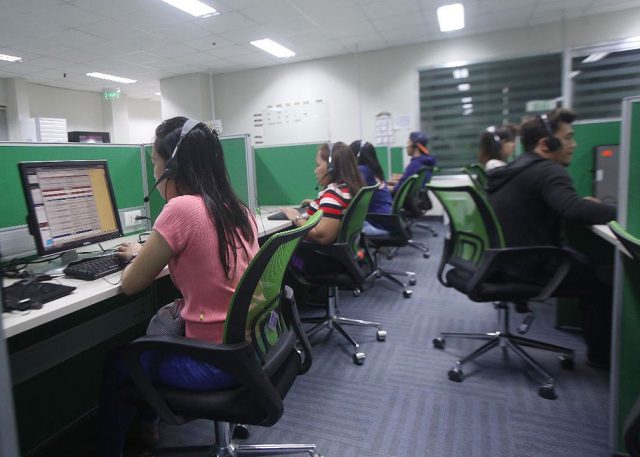
THE INFORMATION TECHNOLOGY and business process management (IT-BPM) industry is targeting to generate as much as $59 billion in revenues by 2028, as it sees continued growth despite the dimming global outlook.
IT and Business Process Association of the Philippines (IBPAP) President Jack Madrid said on Wednesday that the industry expects to grow annually by 8% in the next six years.
“Our industry also has the potential to almost double in revenue what our contribution is to the economy. By the end of 2028, that number could be as high as $59 billion. It shows the potential of the industry to grow further,” he said at a virtual press conference.
In 2021, the IT-BPM sector generated $29.5 billion in revenues.
Mr. Madrid said the industry aims to create another 1.1 million in direct jobs by 2028, of which 54% will be in the countryside.
“If everything is achieved, that will bring our total number to 2.5 million Filipino employees for our industry by the end of 2028,” he said.
Another three million indirect jobs can also be created for sectors such as retail, hospitality, infrastructure, transportation, and real estate, he added.
Mr. Madrid said the industry also aims to increase its contribution to the Philippine gross domestic product (GDP) to 8.5% by 2028, from its 7.5% share in 2021.
“The Philippine IT-BPM sector is at the cusp of a new and exciting era, and the future that awaits us is the brightest that it has ever been. By 2028, the industry may be able to contribute up to 8.5% to the country’s GDP,” Mr. Madrid said.
PESO IMPACT
Meanwhile, Mr. Madrid said the peso’s depreciation against the US dollar is favorable for the IT-BPM sector.
“At the base level, certainly the depreciation of the peso would appear to be in favor of that cost of optimization for the Philippines relative to other destinations. But we also have to remember that predicting and projecting foreign exchange (forex) rates is a volatile situation. We’ve seen the recent strength of the US dollar affect other currencies as well and many of those currencies are of other emerging IT-BPM locations,” Mr. Madrid said.
As of Wednesday, the peso has weakened by 15.64% or P7.98 from its P51-per-dollar close on Dec. 31, 2021.
Majority or around 70% of IBPAP members have headquarters in North America.
Meanwhile, Mr. Madrid said the real estate industry will have to adapt to the “new future of work,” as IT-BPM companies will be allowed to conduct 100% work-from-home (WFH) arrangement after transferring their registration to the Board of Investments (BoI).
“I think we will need to continue building, redesigning, and repurposing workspace to adapt to this new future of work that we are now entering and I think the real estate sector will have to adjust to this,” Mr. Madrid said.
“Obviously there is concern over vacancy rates and the use of commercial space especially in Metro Manila. But when you talk about what is at stake, that 1.1 million jobs potential, that number will need workspace. I’m optimistic that there are brighter days ahead for real estate,” he added.
In a separate statement, Go Negosyo Founder Jose Ma. A. Concepcion III said that businesses should be free to decide on their preferred work arrangement, including WFH.
“I am not against the 70:30 on-site — WFH arrangement for IT-BPM companies… The recommended work arrangement solution for the IT-BPM sector may not be the best one for all organizations. Businesses must be free to decide based on what their operations require,” he said.
However, Mr. Concepcion said economic recovery will rely on private sector consumption and spending.
“We need more mobility if we want the economy to grow and for businesses to remain viable so they can generate more employment,” he said. — Revin Mikhael D. Ochave
IT-BPM industry still bullish on growth
Source: Bantay Radio
0 Comments